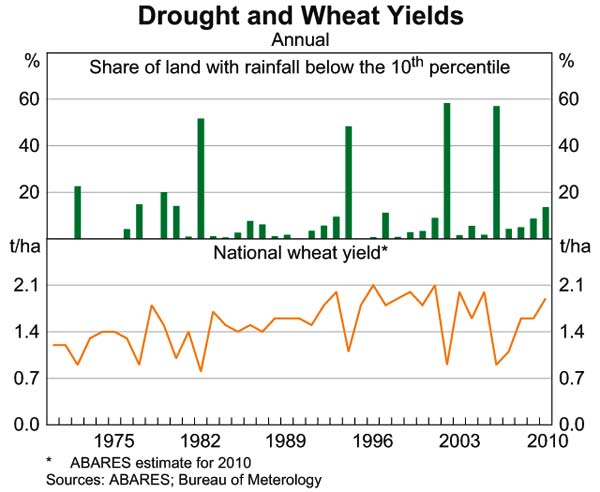Wheat production under a changing climate

As the world heads into an era of climate uncertainty, one of the most pressing issues for Australia will be food security. In Australia, many farmers rely on their wheat crops for a living, and the export value of the wheat industry is worth billions of dollars annually. This kind of economic and social exposure places individuals and regions relying on wheat crops in an increasingly precarious situation.
For many farmers, inter-annual changes in climate can spell disaster for their crop yields (see image below) and many rely of government intervention when times get tough. In Australia, government subsidies are available to support farmers through times of drought but many feel these measures are not adequate. This situation is set to worsen should changes in climate see longer and harsher droughts in farming regions across Australia, and so a better understanding of climate variability will become increasingly important for the country.

Drought and wheat yields: Image shows the relationship between annual rainfall decreases and decreases in total wheat yield for the corresponding year. (source: rba.gov)
How will wheat crops respond to changes in climate?
With climate change comes a range of considerations for wheat farmers in Australia. Wheat is very sensitive to temperature, and flowering times of wheat have been shown to shift with subtle changes in climate. Furthermore, some models predict that by the end of this century the Australian wheat crops will be flowering weeks later than at present. This will mean that practices will need to change in accordance with shifting climates, and more robust data will be required to address the issue of optimal planting seasons.
For the average Australian, the real impact of this could even be seen in products we consume on a daily basis. Wheat yields are predicted to increase with increasing atmospheric carbon dioxide concentrations, but the chemical composition of the plant will also change and this will alter the quality of bread produced.
